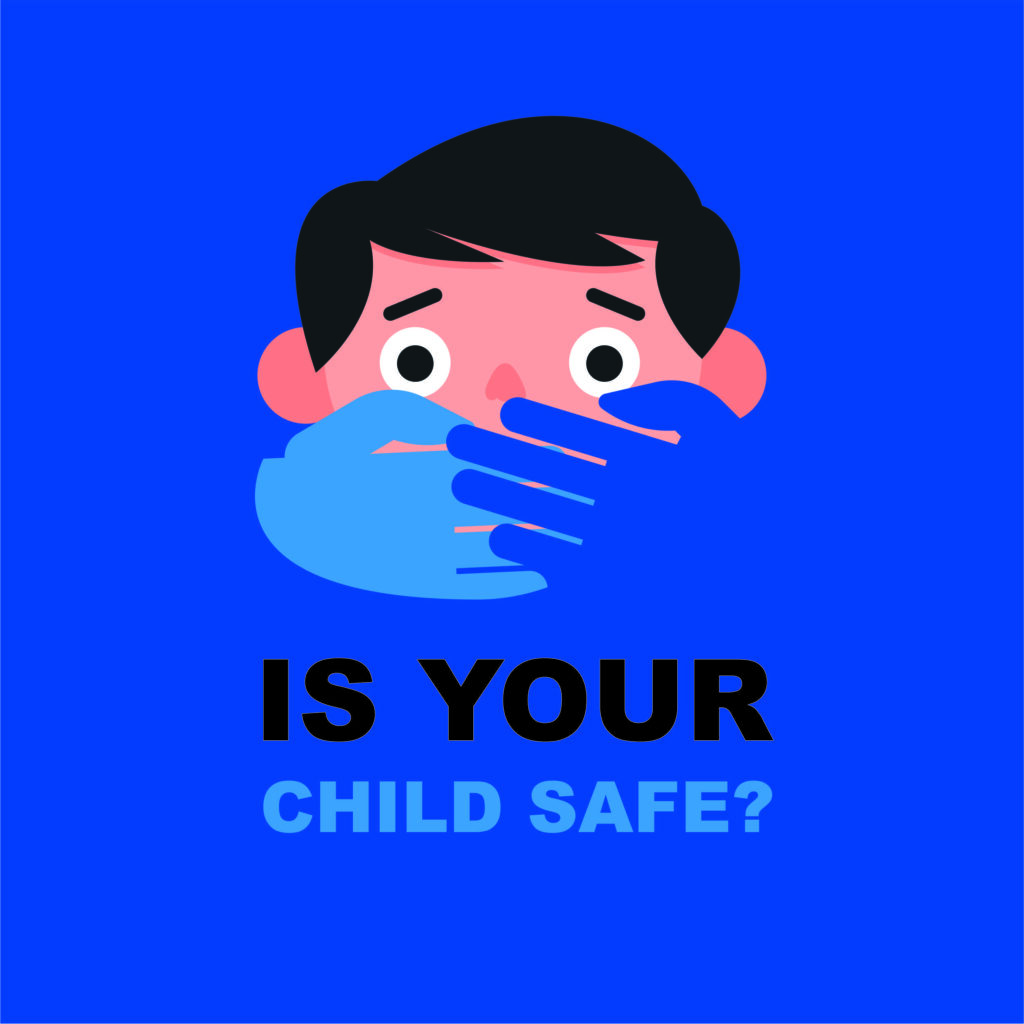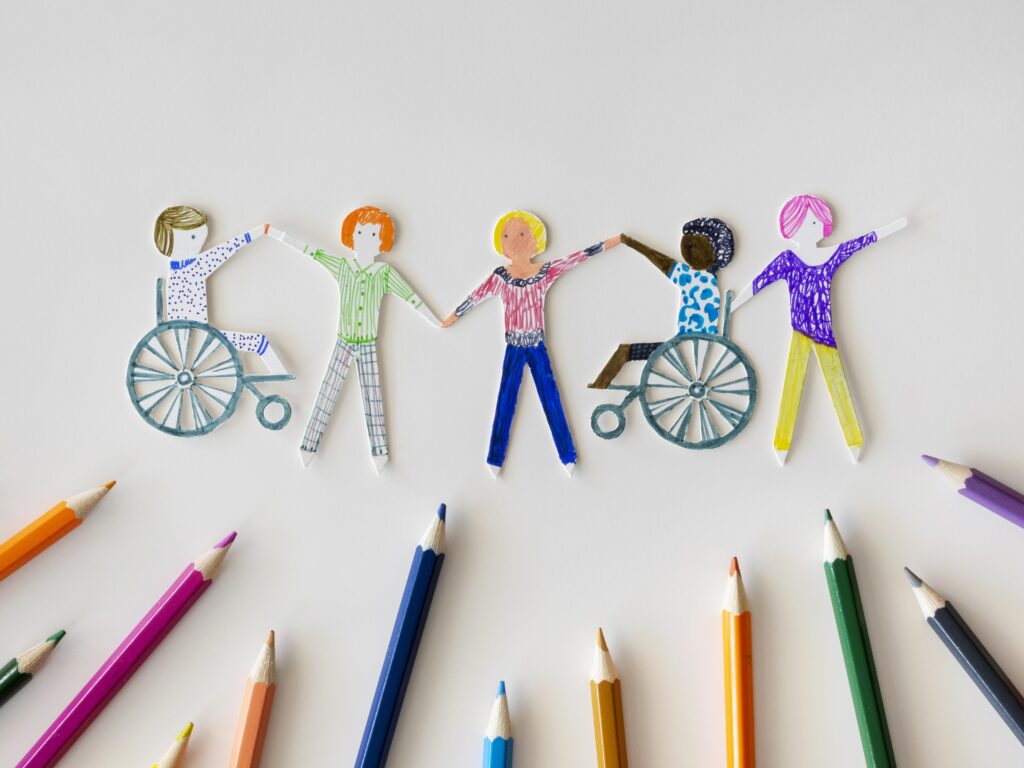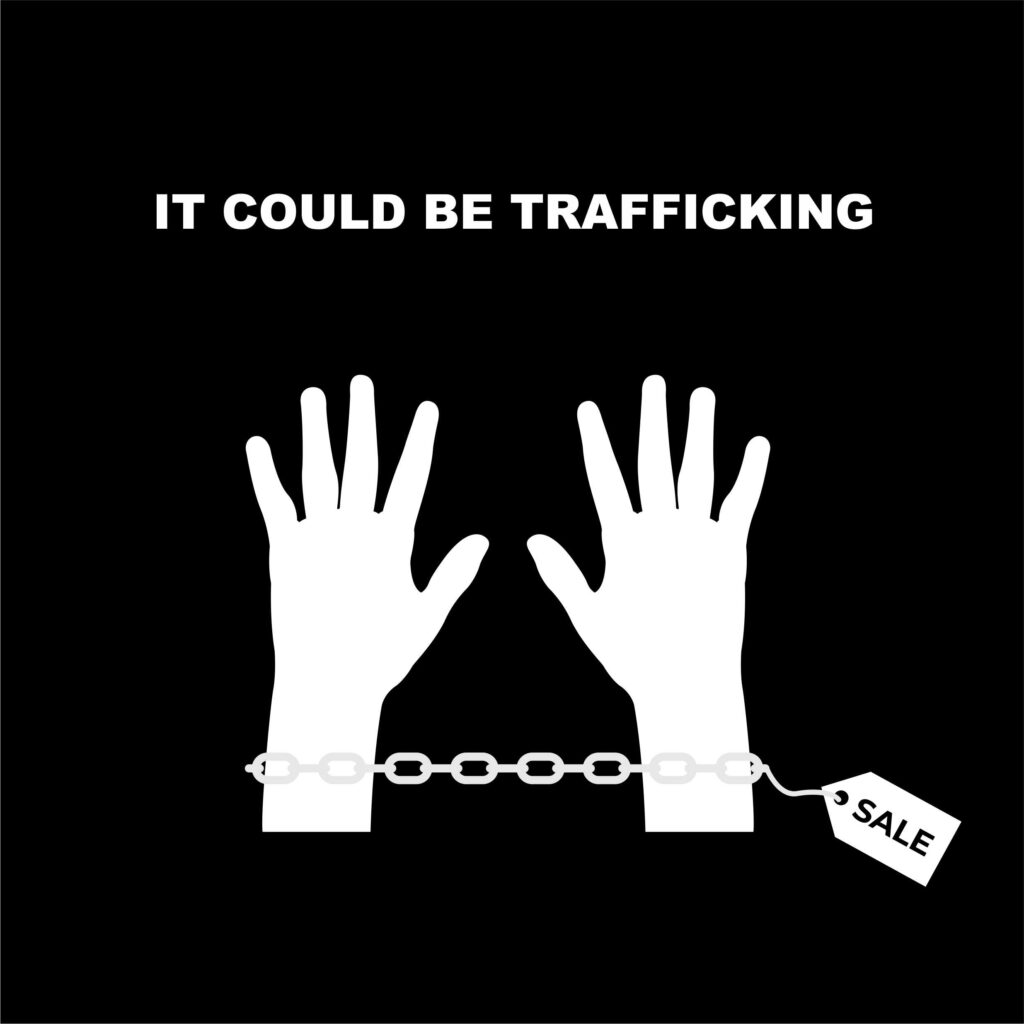
ARE YOUR CHILDREN SAFE?
E Gouws, Head of Intermediate Phase
The movie, Sound of Freedom, has placed the spotlight firmly on the international scourge of child trafficking. It has significantly raised awareness of this prevalent crime.
Parents should be extremely aware of this hidden crime in their neighbourhoods, at schools, in malls and at friends’ homes. Young girls are most vulnerable to human trafficking in SA – a source, transit and destination country, according to a report produced in collaboration with the US Agency for International Development (USAID).
Where do most children go missing in South Africa? Gauteng, KwaZulu-Natal, the Western Cape and the Free State. Victims have been held in areas such as Heidelberg, Springs, Hillbrow, Randburg and Pretoria according to Missing Children, South Africa.
Stoptrafficking.org.za states that 150,000 people are trapped in human trafficking in South Africa, at any given time. Only 1 – 2% of trafficked victims ever escape or are rescued.
There are a number of groups in SA working to raise awareness and offer assistance:
The National Freedom Network, an anti-trafficking group was launched in 2011.
Stop Trafficking endeavours to stop trafficking of people and focuses on preventative awareness, through education.
Missing Children South Africa
Bianca van Aswegen is the national co-ordinator for Missing Children South Africa:
‘…a lot of people are unaware of or uneducated in what to do when a person or child goes missing. A case needs to be opened at your nearest police station immediately, especially when it comes to our children. Because the first 24 – 48 hours are crucial. After 48 hours the child can be anywhere in the world. Action needs to be taken immediately and that is what we are there for too. If people don’t know what to do, we guide them through that the process of what to do and how to do it. As soon as the case is opened, we as Missing Children step in, get the flyer out there, distribute it as far and wide as possible, follow up on all leads and make sure we can get the child back as safely as soon as possible.’
SAFETY TIPS FOR CHILDREN which parents should make sure they know
(ISSUED BY MISSING CHILDREN SOUTH AFRICA)
1. Never go anywhere alone. Always be with people you know and trust.
2. Always tell your parents where you are going, even if your plans change. Make sure your parents have your friends’ phone numbers as well.
3. Know your parent’s names and telephone numbers off by heart – also know another family member’s details in case you can’t get hold of your parents.
4. If you get lost in a shopping mall, don’t go looking for your parents by yourself.
5. Don’t go with people you don’t know or don’t trust. Go to public toilets accompanied by your friends or parents.
6. Don’t take any gifts from strangers even if it’s that chocolate you really like.
7. Never accept lifts from strangers.
8. Make a scene when you think someone is following you. Rather be safe than sorry.
9. Write your name and parents’ phone numbers on the inside of your clothes and schoolbag. This way, strangers can’t see it.
10. Never play in the streets alone or any place where there is no adult supervision – it’s dangerous!
11. Remember the BUDDY SYSTEM: always take a friend with you – don’t go anywhere alone. This way, you can help each other when you are in trouble.
12. Tricky people are adults who ask children for help! No adult should need the help of a child and this is a huge red flag. Strangers who tempt children with treats and rewards, who lure them to their cars with empty promises or who touch your body when you say ‘no’ are bad people.
13. Stay in the exact spot where you are if you get separated from your parents and scream out your first name at the top of your lungs until your parents have found you.
14. Always stay in a group of friends. We call this the ‘Buddy System’. Always avoid alleys and vacant lots when walking to school or a friend’s house.
15. Scream and make a noise when someone tries to grab you or try and push you into a car. Draw as much attention to yourselves as possible.
16. Social media can be a dangerous place where predators lure children. Remember to never tell strangers, not even children, your phone number, address, or name on-line. And don’t ever send personal photos to on-line friends or tell them when and where you to hang out. Always decline invitations to meet in person.
17. Always tell your parents where you are going and who you are going with. If there are change of plans inform your parents about it and also give your friends telephone numbers to your parents.
18. Never go to public restroom alone, always be accompanied by an adult that you trust.
19. Always be vigilant of your surroundings, if you feel someone is following you, make a noise and draw attention. Rather be safe than sorry.
20. Always stay in the school grounds until your parents are there to pick you up, and if there is a problem report to your teacher immediately. And remember the family exclusive password. If a stranger says they have come to pick you, the person must know the password, otherwise don’t go with anybody you don’t know or recognise. You will then know that the person was not sent to pick you up if they don’t know the password.
Sources: https://www.iol.co.za/sundayindependent/news/the-alarming-rise-in-the-scourge-of-child-trafficking-in-sa-c5e47dd4-12e1-4f40-8196-235e2924c11e
https://www.businesslive.co.za/bd/national/2023-01-24-sa-fertile-ground-for-trafficking-especially-girls/
https://www.stoptrafficking.org.za

INCLUSIVITY (UN)LIMITED
D van Straten, Head of Senior Phase
The Constitution of the Republic of South Africa is the supreme law of the country, and no other law may be in conflict with the Constitution. It contains a Bill of Rights that protects the fundamental human rights of all people in the country. Everyone is bound by it and is obliged to respect and promote the rights it protects.
Does freedom of expression (a basic constitutional right of all people) therefore allow me to “shout fire in a crowded theatre”? A limitation clause enables constitutional rights to be partially limited for a specific purpose. Most rights are subject to limitations that are necessary for the common good of social justice and public order or for the protection of the rights of others. For example, “Shouting fire in a crowded theatre” is commonly used to describe speech that is intended to cause panic. Although you may “freely express” what you want, what is illegal is inciting unnecessary panic, no matter how you do it, be it yelling fire or pulling a fire alarm.
Like the rights it protects, inclusivity is firmly entrenched in the South African Constitution. No person may unfairly discriminate against anyone on one or more grounds, including race, gender, ethnic or social origin, sexual orientation, religion, language, etc.
The teaching profession is no exception. In today’s schools, inclusivity is not just something that is taught; it has become a mindset that is expected to be accepted without question and certainly not opposed. The Western Cape Department of Education, for example, has for some time proposed its gender identity and sexual orientation policy which allows learners to wear any uniform which matches their gender identity; allows the provision for a unisex bathroom in schools and promotes gender inclusion integration through writing, reading, art assignments or music.
In line with this the Department of Basic Education (DBE) has tabled new proposals that encourage unisex bathrooms in public schools. The proposals also encourage teachers to do away with the use of pronouns that indicate genders such as “boys and girls” or “him and her”.
Without question, pupils of all sexual orientations and gender identities must be encouraged to participate in school activities, free from bullying, harassment and discrimination. However, like any other right, the right to be queer is subject to the limitation clause, which implies that limitations are necessary for the protection of the rights of other children – if infringed upon. The questions we should therefore ask ourselves are: Could my child be harmed or negatively affected by being exposed to inclusive education? Will peer (or teacher) pressure prevent my child from choosing their worldview? When my child is exposed to non-traditional family values, is there a possibility that their own values might be infringed upon?
If the answer to any of these questions is ‘yes’, as parents, we will have to act, not only because it is our Constitutional right, but as a matter of protecting the well-being of our children.
Sources: Anonymous. 2023. Shouting fire in a crowded theater – Wikipedia
Anonymous. 2022. [Web:] Proposed guidelines for schools in South Africa include unisex bathrooms, dress code and LGBTQ+ support – BusinessTech
Anonymous. 2014. [Web:] https://constitutionnet.org/sites/default/files/limitations_clauses.pdf
Mclean. R. 2022. [Web:] New Gender Guidelines Aim To Promote Inclusivity In Schools (careersportal.co.za)

FAILURES & MISTAKES IN A GROWTH PERSPECTIVE
J Sibeko, Head of FET Phase
Some children, especially perfectionists, have an excessive fear of failure. They avoid it by giving up on subjects or activities that don’t come easily. Others mistakenly equate a failure with a lack of intelligence or talent, taking needless hits to their self-esteem. Their own reaction to failure can make a powerful impact. When your child faces setbacks, explain that failure is an expected part of the learning process that helps build intelligence and stamina. Taking a matter-of-fact approach, encourage your child to analyse what went wrong, seek help where needed, and try again… and again.
As a parent, you may be tempted to rush in to help when you see your child struggling with an assignment or problem. But struggling is essential. First allow your child to try and show you what he or she has done before you help. Resist the urge to intervene immediately, because struggling is essential to building self-confidence, independence, and perseverance. (You can always intervene later if you see the struggle is becoming unproductive or too frustrating.)
By trying these approaches, you can help your child grow in tenacity and focus, which are vital traits needed after school.
https://www.connectionsacademy.com/support/resources/article/4-tips-for-empowering-students-to-persevere

WATCH OUT…IT COULD BE TRAFFICKING
A du Preez, Head of Academics
We hear about human trafficking on the news and feel pity for that poor, unknown victim far away. What we do not always realise though, is that it happens all the time around the globe – far away – yes, but also nearer than we think. The favourite victims are children. Our children.
Minors are being stolen, harmed and exploited for the purpose of involuntary labour, forced criminal activity or commercial sex. Although it could involve kidnapping and transportation to some remote country, it could also happen even within our communities and in our homes – right under the parents’ eyes.
Studies show that most predators stalk their victims via the Internet and social media, where they lure and groom the child into a relationship so that the victim becomes dependent on their trafficker. The trafficker starts to manipulate the child and within about eight days the trafficker and victim meet in person.
However, parent, take heart. There is much you can do to keep predators far away from your children:
- Work on building and maintaining a healthy relationship with your child. Predators are always on the lookout for isolated, lonely and depressed victims.
- Be vigilant regarding your child’s online activities. Traffickers hide in all popular apps. Turn off location services while on social media and take care what photos you post.
- Watch out for the following signs in your child that, according to H. Olson and R. Whitfield, might suggest trafficking:
- Withdrawing
- New onset of anxiety or depression
- Self-harm
- Eating disorders
- Sudden change in academic achievement or engagement in school
- New friend group or controlling romantic relationship
- New expensive gifts or unexplained sums of money
- Unexplained aches and pains
- Sexually transmitted infections
Children are precious God-given gifts entrusted to parents, each carefully wrapped and labelled: Handle with care.
Sources: Olson. H. 2020. [Web:] What every parent should know about preventing child trafficking | Children’s Mercy Kansas City (childrensmercy.org)
Barber. T.C. 2020. [Web:] Parents, here’s how you can protect your kids from traffickers (aleteia.org) Rosenthal. L. 2021. [Web:] Human Trafficking: Understanding the Red Flags (nationwidechildrens.org)
